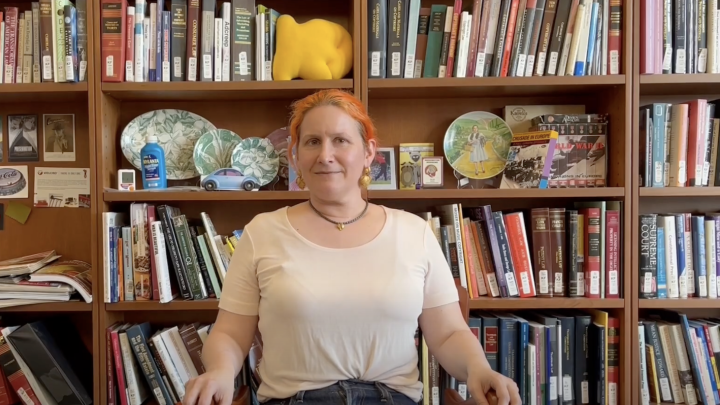Donna: Are you breaking up with me?
Eric: Are you giving me back the ring?
Donna: Yes.
— That '70s Show, "The Promise Ring"
What happens if “I do” ends…otherwise?
Stanton professor of the first amendment Rebecca Tushnet is an expert in the law of engagement rings. For years, she’s been studying why the law treats engagement rings differently than other gifts.
Many things fall apart in the case of a broken engagement. Lovers who split tend to move out, return borrowed hoodies, take away Netflix privileges (no more House of Cards for you!), and leave with memories and bittersweet hopes. On national television, Bachelorette season 18 runner-up Brandon Jones declared,“Everyone, I didn’t throw the ring!” setting the record straight about whether he threw an engagement ring intended for contestant Michelle Young from a cliff when she dumped him.
Melodrama or heartbreak aside, what about the rings?
By law, engagement bands are considered “conditional gifts,” given contingent on the premise of marriage. The gift is offered with the intention that its conveyance will become final upon a later event.
That sets it apart from a gift such as a bouquet of roses: if the recipient were to reject the flowers, according to the law, the giver would not be able to claim compensation for the bouquet or its cost. Engagement rings, however, follow different rules.
The modern rules of engagement, says Tushnet, arose from a complicated legal regime that has undergone major changes over the centuries. Under common law, a party could bring someone to court for breach of a promise to marry. From the Middle Ages until the early twentieth century, this common-law tort—known as “breach of contract to marry,” with the awarded monetary remedy termed “heart balm”—allowed for certain damages to be awarded in the event that nuptials were called off. The “balm” was supposed to heal a broken heart.
In the early twentieth century, a number of state legislatures removed existing tort causes of action related to marriage, considering them irrelevant amidst changing morals and sociocultural norms. These torts, which include “alienation of affections,” “breach of promise to marry,” “criminal conversation,” and “seduction,” were established in the United States four hundred years ago, when marriage was as much an economic institution as an emotional one. Heart balm lawsuits, like alienation of affection, are still filed in some states—but less frequently.
During the past two decades, however, many state courts have noted instances in which the law is abused by plaintiffs feigning lost love. Some states have therefore chosen to abolish cause of action, including Utah, where the state’s Supreme Court abolished the cause of action for a breach of agreement to marry.
“Are you breaking up with me?” Donna asked Eric on That ‘70s Show.
“Are you giving me back the ring?”
“Yes,” said Donna.
Legally, says Tushnet, who has been examining the shifting nature of these laws for decades, Donna would have to.









